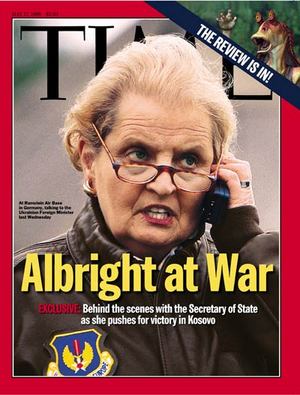Hillary Clinton Works Cited
Black, Allida M. "The Modern
First Lady And Public Policy: From Edith Wilson Through Hillary Rodham
Clinton." OAH Magazine Of History 15.3 (2001): 15-20. ERIC. Web. 23 Sept.
2012.
Caroli, Betty Boyd. First Ladies: From Martha Washington to Michelle Obama. Oxford [England: Oxford UP, 2010. Ebrary-The Ohio State University. July 2010. Web. 15 Nov. 2012. <http://site.ebrary.com.proxy.lib.ohio-state.edu/lib/ohiostate/docDetail.action?docID=10395074&p00=michelle%20obama>.
"Hillary Clinton Biography." Bio.com. A&E Networks Television, n.d. Web. 15 Nov. 2012. <http://www.biography.com/people/hillary-clinton-9251306?page=1>.
Kornblut,
Anne E. Notes from the Cracked Ceiling: Hillary Clinton, Sarah Palin, and
What It Will Take for a Woman to Win. New York: Crown, 2009. Print.
McCrummen, Stephanie. "Hillary Clinton: The Secretary of 1,000 Things."BostonGlobe.com. The Boston Globe, 02 Dec. 2012. Web. 02 Dec. 2012. <http://bostonglobe.com/news/nation/2012/12/02/hillary-clinton-the-secretary-things/gjaf6vcxUZug0BCvkhj4sO/story.html>.
Parry-Giles, Shawn J. "Mediating Hillary Rodham Clinton: Television News Practices and Image-making in the Postmodern Age." Critical Studies in Media Communication 17 (2000): 205-26. Web. 15 Nov. 2012. <http://ejournals.ebsco.com/Direct.asp?AccessToken=299A3918SXHBBMFWYW32HMYMBYZY8LFYSS&Show=Object&msid=937867098>.
Michelle Obama Works Cited
Bruce, Marino A., and Donald Cunnigen. Race in the Age of Obama. Bingley: Emerald, 2010. Ebrary-The Ohio State University. Dec. 2010. Web. 20 Nov. 2012. <http://site.ebrary.com.proxy.lib.ohio-state.edu/lib/ohiostate/docDetail.action?docID=10445344>.
Caroli, Betty Boyd. First Ladies: From Martha Washington to Michelle Obama. Oxford [England: Oxford UP, 2010. Ebrary-The Ohio State University. July 2010. Web. 15 Nov. 2012. <http://site.ebrary.com.proxy.lib.ohio-state.edu/lib/ohiostate/docDetail.action?docID=10395074&p00=michelle%20obama>.
"Michelle Obama Biography." Bio.com. A&E Networks Television, n.d. Web. 19 Dec. 2012. <http://www.biography.com/people/michelle-obama-307592>.
http://www.colbertnation.com/the-colbert-report-videos/409390/april-11-2012/michelle-obama-pt--1
Sarah Palin Works Cited
Denton, Robert E. Studies of Identity in the 2008 Presidential Campaign. Lanham, MD: Lexington, 2010. Ebrary-The Ohio State University. June 2010. Web. 25 Nov. 2012. <http://site.ebrary.com.proxy.lib.ohio-state.edu/lib/ohiostate/docDetail.action?docID=10391909>.
Palin,
Sarah. Going Rogue: An American Life. New York: Harper, 2009. Print.
Stremlau, Rose. "Sarah Palin
And Me." Chronicle Of Higher Education 55.11 (2008): B32. ERIC. Web. 23
Sept. 2012.
Nancy Pelosi Works Cited
Peters, Ronald M., and Cindy Simon Rosenthal. Speaker Nancy Pelosi and the New American Politics. New York: Oxford UP, 2010. Ebrary-The Ohio State University. Oxford University Press, USA, Apr. 2010. Web. 27 Nov. 2012. <http://site.ebrary.com.proxy.lib.ohio-state.edu/lib/alltitles/docDetail.action?docID=10382967>.
Condoleezza Rice Works Cited
Felix, Antonia. Condi: The Condoleezza Rice Story. New York: Newmarket, 2002. Print.
Rice,
Condoleezza. Condoleezza Rice: A Memoir of My Extraordinary, Ordinary Family
and Me.New York: Delacorte Press, 2010. Print.
"World Biography." Condoleezza Rice Biography. N.p., n.d. Web. 27 Nov. 2012. <http://www.notablebiographies.com/news/Ow-Sh/Rice-Condoleezza.html>.
Madeleine Albright Works Cited
Albright, Madeleine K., and Hillary Rodham Clinton. "America's Commitment Women 2000." President's Interagency Council on Women, 5 Jan. 2000. Web. 30 Nov. 2012. <http://permanent.access.gpo.gov/lps15633/secretary.state.gov/www/picw/2000commitment/americas_commitment.pdf>.
Albright, Madeleine Korbel., and William Woodward. The Mighty and the Almighty: Reflections on America, God, and World Affairs. New York: HarperCollins, 2006. Print.
Blood, Thomas. Madam Secretary: A Biography of Madeleine Albright. New York: St. Martin's, 1997. Print.
"Madeleine Albright (United States Secretary of State)." Encyclopedia Britannica Online. Encyclopedia Britannica, n.d. Web. 30 Nov. 2012. <http://www.britannica.com/EBchecked/topic/13109/Madeleine-Albright>.










